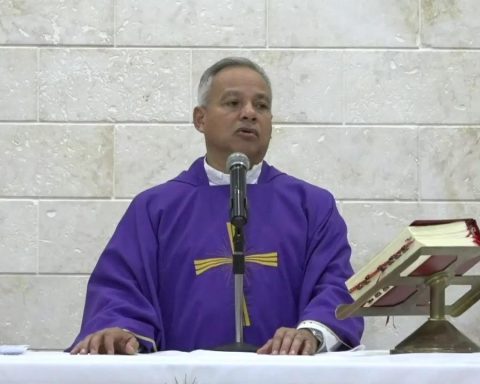By analyzing more than a million tweets published by 53 national media outlets between October 2021 and September 2022, as well as the conversation generated in 101 Facebook groups, researchers from the School of Government and Communications of the Central University detected significant differences. between what the press shows and what people comment on social networks about the impact of migration in the country.
The study, called “Undercurrents”, detected, among other things, that while the press associates migration with issues related to concepts such as crisis, lack of regulation and crime problems, people associate it with the impact on access to state benefits in services such as health, housing and education.
You may also be interested in:
The sociologist and one of the researchers of the study, Axel Callís, pointed out that the object of the analysis was “to try to read with some anticipation, some of the conversations that citizens have and that some may become a current of opinion, a social outbreak or a lawsuit or something, and that it is different from the agenda that the media itself has. That allows us to see the gap between the citizen conversation with what the media publish.”
Among the 10 words most mentioned by the press in migration news are: Chile, crisis, Colchane, Iquique and north; while in the networks, people comment that Chilean citizens, when requesting a state benefit, would be harmed, since foreigners would have priority treatment when receiving them.
The foregoing is evidenced by analyzing the most relevant issues that arose in social networks in relation to migration, which point to situations such as:
- Immigration would be one of the causes of the lack of enrollment in the different educational levels, because the establishments would give priority to people who come from other countries.
- Migrants also have access to housing subsidies (DS1 or DS49), while there are Chileans who have not yet obtained a home.
- The responsibility lies with both the current government and previous ones (former President Piñera and former President Bachelet), who would have been concerned with benefiting migrants rather than Chileans.
On the other hand, Matías Gómez, also a sociologist and academic at the UCEN School of Government and Communications, explained that “the project has three stages of processing. It is oriented towards mixed methodology, with triangulation of data from different qualitative sources. and quantitative. First we reviewed Facebook, in different themes, analyzing spontaneous conversation and its characteristics. There we detected the theme of migration”.
“In the second stage, we analyzed Twitter posts and classified close to a million professional media posts, of which 10,000 were about migration. Then, we analyzed and grouped the words, based on relevant topics,” he concluded.

















